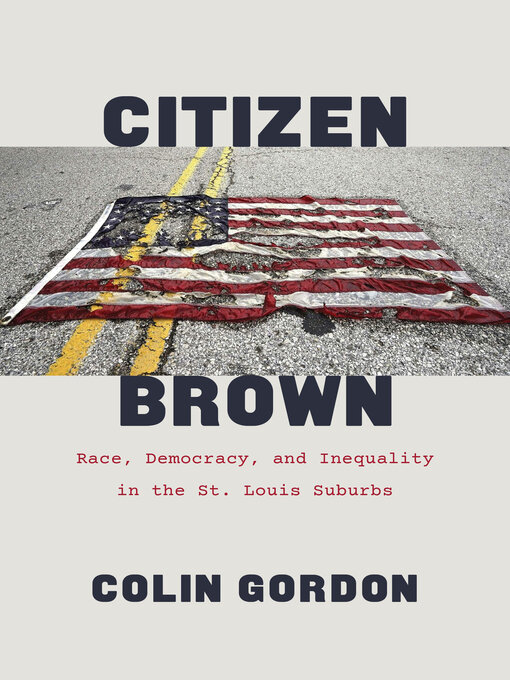- Political Biographies and Memoirs
- Entertainment Biographies and Memoirs
- Cultural and Religious Biographies and Memoirs
- See all
-
Description
-
Details
The killing of Michael Brown in Ferguson, Missouri, ignited nationwide protests and brought widespread attention to police brutality and institutional racism. As Colin Gordon shows in this book, the events in Ferguson didn't just expose the deep racism of a local police department—it also revealed the ways in which decades of public policy effectively segregated people and curtailed citizenship not just in Ferguson but across the St. Louis suburbs.
Citizen Brown uncovers half a century of private practices and public policies that resulted in bitter inequality and sustained segregation in Ferguson and beyond. Gordon shows how municipal and school district boundaries were pointedly drawn to contain or exclude African Americans and how local policies and services—especially policing, education, and urban renewal—were weaponized to maintain civic separation. He also makes it clear that the outcry that arose in Ferguson was no impulsive outburst but rather an explosion of pent-up rage against long-standing systems of segregation and inequality—of which a police force that viewed citizens not as subjects to serve and protect but as sources of revenue was only the most immediate example. Worse, Citizen Brown illustrates the fact that though the greater St. Louis area provides some extraordinarily clear examples of fraught racial dynamics, in this it is hardly alone among American cities and regions.
"[An] innovative study . . . Citizen Brown also benefits from being grounded in political theory about citizenship and its many meanings." —Missouri Historical Review

Kindle Book
- Release date: September 11, 2019
OverDrive Read
- ISBN: 9780226647517
- Release date: September 11, 2019
EPUB ebook
- ISBN: 9780226647517
- File size: 4991 KB
- Release date: September 11, 2019
Formats
Kindle Book
OverDrive Read
EPUB ebook
subjects
Languages
English
